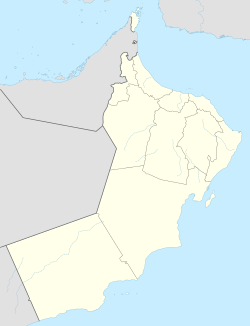Al Mawaleh الموالح | |
|---|---|
Residential Area | |
| Coordinates: 23°37′N58°15′E / 23.617°N 58.250°E | |
| Country | |
| Governorate | Muscat Governorate |
| Province | Al Seeb |
| Time zone | UTC+4 (Oman Standard Time) |
Al Mawaleh (or Al Mawalih) is a residential area in Muscat, in northeastern Oman.The three main landmarks here are the Muscat City Center, Markaz Al Bahja And Mazoon Square. [1] [2]
